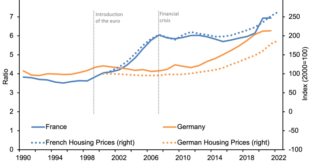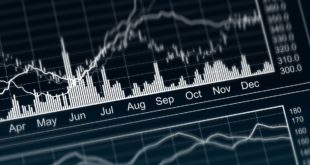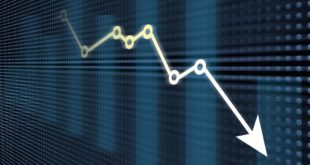Resettling Gazans in America—at taxpayer expense—will be sold as a "humanitarian" effort, but anyone who sees through the propaganda will see that it's really all a cynical effort to please Israeli politicians. Original Article: You're Paying for the Israel War. You'll Also Pay for the Refugees. [embedded content] Tags:...
Read More »Easy Money Undermines Social Mobility
Central banks around the world target a stable price inflation rate of 2 percent annually over the medium term. This is widely considered to be monetary policy’s most important contribution to the smooth functioning of a dynamic economy. This view is wrong on multiple grounds, but there is one problem with it that is commonly ignored. Inflation, even if it remains relatively moderate, can contribute to rising inequality and undermine social mobility. It therefore...
Read More »Can Econometric Models Provide a Laboratory Setting for Economic Analysis?
Econometric model building attempts to produce a laboratory with controlled variables. By means of mathematical and statistical methods, an economist establishes functional relationships between various economic variables. For example, personal consumer outlays are related to personal disposable income and interest rates, while fixed capital investments are explained by the past stock of capital, interest rates, and economic activity. A group of such estimated...
Read More »You’re Paying for the Israel War. You’ll Also Pay for the Refugees.
The United States regime has picked sides in the Israel-Hamas war and has committed to funding Israel's ongoing bombing of non-combatant men, women, and children in the Gaza strip. Northern Gaza's infrastructure is now all but destroyed, with millions of Gazans displaced and homeless. Nearly ten times more Gazans than Israelis have now died in the conflict. Many Gazans have fled to the southern portion of Gaza, but homelessness and abject poverty awaits them there. ...
Read More »The TSA Is Still Crazy after All These Years
The TSA has been promising to end its boneheaded ways for more than 20 years. Flying out of Dallas International Airport last week, I ruefully recognized that all TSA reform promises are malarkey. As I neared the end of a TSA checkpoint line, I saw two women loitering behind a roped off section for CLEAR, a new biometric surveillance program that works with 35 airports and coordinates with TSA. CLEAR involves travelers standing in photo kiosks that compare their...
Read More »Pushing the False Narrative of U.S. Isolationism
Americans have been fed the myth that US foreign policy from 1919 to 1941 was isolationist. In reality, US policies destabilized already volatile international relations. Original Article: Pushing the False Narrative of U.S. Isolationism [embedded content] Tags: Featured,newsletter
Read More »How Austrian Economics Impacted My Life
Professor Joseph T. Salerno tells his personal story of how he discovered Austrian economics and how he has become one of the its leading proponents. The lecture is part of the Future of Freedom Foundation’s Fall 2023 online conference “How Austrian Economics Impacted My Life,” and includes an introduction and remarks by Jacob Hornberger, and a question-and-answer period. To learn more about the Future of Freedom Foundation, visit fff.org. [embedded...
Read More »Is ExxonMobil’s Acquisition of Pioneer Natural Resources a “Threat to Democracy”?
We hear plenty about threats to American democracy: Donald Trump’s a threat, the Republican party is a threat, and any number of other people or political parties are threats. Now it’s ExxonMobil’s purchase of Pioneer Natural Resources. Jeff D. Colgan, a professor of political science and the director of the Climate Solutions Lab at Brown University, wrote in an easily missed piece entitled “Exxon Mobil’s Pioneer Acquisition Is a Direct Threat to Democracy” for the...
Read More »Mises on the History of Warfare
As war rages in the Middle East, we are reminded of what Mises wrote in 1949 on warfare and its awful effects. Original Article: Mises on the History of Warfare [embedded content] Tags: Featured,newsletter
Read More »The Inevitable Bust: Why Economic Booms Contain the Seeds of Their Own Destruction
The recurring cycle of economic booms followed by inevitable busts has remained a puzzle for generations of observers. While mainstream Keynesian and monetarist theories propose monetary interventions to smooth these fluctuations, the Austrian School offers a compelling and alternative perspective. Austrian business cycle theory provides a profound understanding of how artificially inflated booms sow the seeds of their own destruction. Delving into the depth of this...
Read More » Swiss Economicblogs.org
Swiss Economicblogs.org






